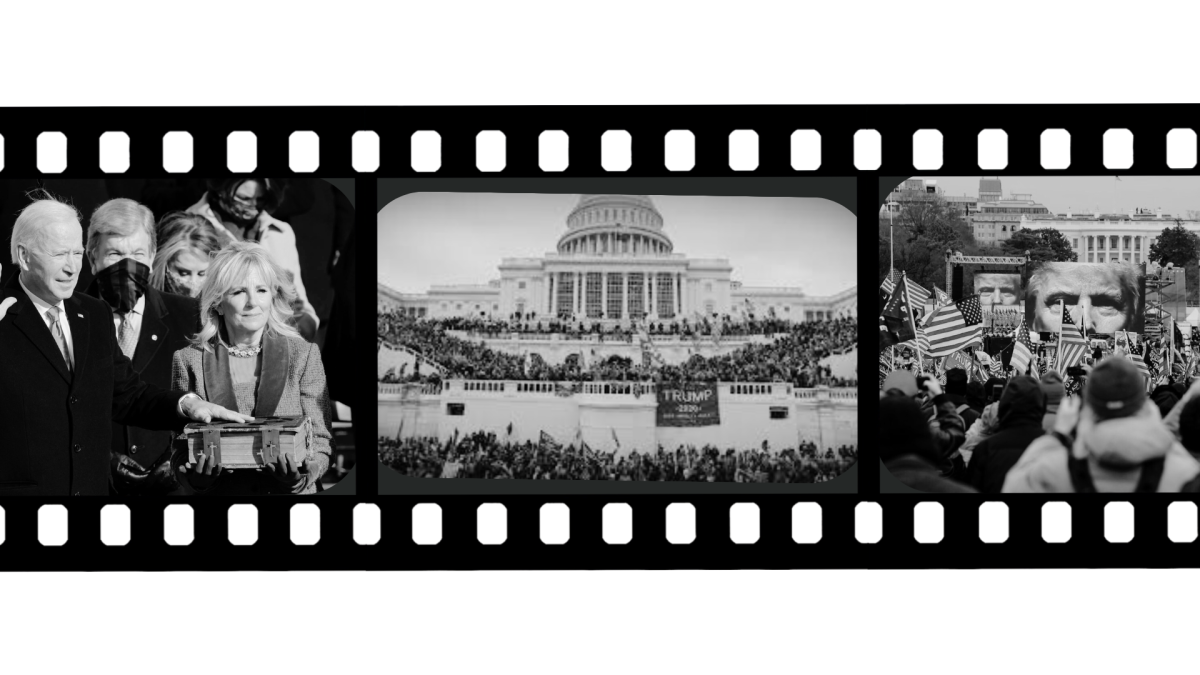A peaceful transfer of power is one of the most important aspects of American democracy. With local, state and federal elections happening anywhere from every two to six years, it is important that peaceful transfers of power between incumbents and new elects remain the norm.
Though it is important at every level of government, it is arguably most important at the presidential level since they have the job of representing all American people across the country and not just one district, state or party.
In recent years, mutual respect between candidates has gone down the drain. It has become less about doing what is best for every American citizen and more about what is best for their party.
In the past during elections of high tension, candidates have always found a way to be civil, put their egos to the side and concede peacefully for the well-being of the country.
The best example of this can be seen in the events following the year 2000 presidential election between Al Gore and George W. Bush.
It was an incredibly close election that resulted in a recount. Citizens were loyal to their candidates and many efforts were made on both sides to get the most votes counted for their candidate.
Once the recount was over and the race was called for Bush, many people who had voted for Gore or worked on the recount in his favor, were upset and disappointed.
Being disappointed at the outcome of an election is entirely understandable. Elections are a big deal and people usually do not choose who they vote for lightly. They usually have hope and faith in their candidate, and if they do not win it can be upsetting.
But it is up to the losing candidate to set the behavior and reaction for their supporters. If they concede and give their best to the president-elect, then their supporters will be more open to accepting the outcome of the election.
Gore respectfully conceded when the race was officially called for Bush. “For the sake of our unity as a people and the strength of our democracy, I offer my concession,” said Gore during his concession speech. And though his supporters were still upset, they accepted the outcome because he conceded peacefully and gave his best to Bush.
Not only does the losing candidate’s concession help facilitate the transfer of power, but so does the message of the president-elect.
“I was not elected to serve one party, but to serve one nation,” said Bush in his acceptance speech.
This helped those who did not vote for him feel better about their candidate losing, they felt they would still get the best from their new president.
American voters used to be able to respect politicians enough to be able to trust their lives in the hands of either candidate. But today, only a little more than two decades after the 2000 election, citizens can no longer believe in both candidates and certain politicians cannot accept a loss.
This presidential election has incredibly high tensions, arguably higher than the past two. One reason is that many people are afraid of what former President Donald Trump might do if he does not win the election and that there might be a repeat of what happened when he lost in 2020.
One of the worst transfers of power in U.S. history was during the 2020 election. Trump would not believe the results of the election that were in favor of President Joe Bieden and he would not give up his power peacefully, saying in a speech Jan. 6 “We will never give up, we will never concede.”
His inability to be civil and respectfully accept the results of a fair election, coupled with the speech he gave Jan. 6 saying to his followers to “stop the steal,” led to one of the most embarrassing moments in recent U.S. history, the Jan. 6 storming of the U.S. Capitol.
No matter the outcome of an election, nothing like the violence and treason that occurred Jan. 6 should have been able to happen, and it absolutely should not have been supported and incited by the president at the time and presidential candidate.
Voters can be disappointed and they can also protest within legal limits, but violence and treason are unacceptable.
A peaceful transfer of power is the most effective way to prevent anything like Jan. 6 from happening again. Candidates being able to accept the outcome of an election and respectfully concede is what leads to a peaceful transfer of power.
If Trump wins this election, there is no doubt that there will be protests, but nothing compared to Jan. 6. The transfer of power from Biden to Trump will be peaceful because both Biden and Vice President and presidential candidate Kamala Harris have shown the most respect politicians can.
If Harris wins, the transfer of power from Biden to Harris will be seamless, but it would not be a surprise if Trump did not accept the results of the election and says it was falsified to rally his supporters in protest similar to Jan. 6.
Many Americans are afraid of what will happen if Trump wins this year’s election. The issue is that if he loses, there is still something to fear. As seen in recent history, Trump’s obvious inability to be respectful of other candidates and his talent for riling up his followers make it hard to believe there will be a peaceful or treason-free transfer of power in this election.





















